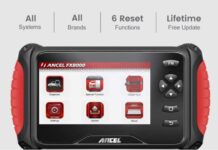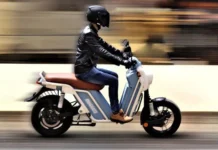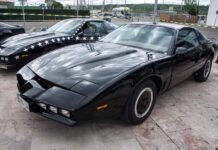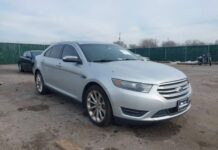Personal auto insurance provides a wide range of coverage to help you and your family in the event of an accident. These include liability insurance, medical payments or PIP (required in states with no-fault systems), and hired and non-owned auto insurance.
Typically, personal auto insurance does not cover vehicles used for commercial purposes—for example, those used to transport passengers or deliver pizzas. Learn more about the differences between personal and commercial auto insurance.
Coverage for Damage to Your Car
Depending on the policy, personal auto insurance typically covers liability, medical payments, and damage from uninsured motorists. It may also cover rented or borrowed vehicles.
It generally protects the insured and their immediate family driving a car listed on the policy. It does not cover accidents during business-related trips or commuting to and from work.
However, the insurer may allow you to add an endorsement called hired and non-owned auto. The coverage if your job requires that you or your employees drive personal cars for work. Adding this can protect you in case those cars are involved in a crash while working or when you rent or borrow vehicles for work. It will also help pay for injuries or property damage sustained by other people not listed on the policy.
Coverage for Damage to Other People’s Cars
Personal auto insurance typically includes bodily injury and property damage liability, which help pay for others if you or someone driving your car gets into an accident that causes injuries or damages their vehicle or other possessions. Some policies also include medical payments or Personal Injury Protection (PIP) coverage, which pays quickly, without determining fault, for the policyholder’s and passengers’ medical expenses up to a set limit.
Additionally, most insurers offer collision and comprehensive coverage, which help pay for damage caused by other events not related to a crash, such as theft, vandalism, or hitting a deer. Many insurers offer supplemental coverage products for commercial activities such as pizza delivery or ride-sharing services. This can be particularly important for small business owners who rely on personal vehicles to conduct sales calls, product demonstrations, or consultation visits.
Coverage for Damage to Other People’s Property
A severe accident can wipe out your savings and investments and even force you to sell your home. In addition to state-required liability coverage, personal auto insurance usually includes no-fault or PIP (Personal Injury Protection) and property damage coverage.
These coverages pay for medical expenses, lost wages, and other costs associated with injuries caused by an accident you cause.
Other optional coverages include collision and other than collision (comprehensive). The former reimburses for damage to your vehicle in a collision with another car or object, including a guardrail, building, or tree. The latter protects against theft, vandalism, flooding, hail, and damage caused by animals (including deer). Most personal auto policies will not cover vehicles titled in your business name.
Coverage for Damage to Your Property
While most states do not require comprehensive or other than collision coverage, a personal auto policy can protect your vehicle from damage due to theft, vandalism, animal collisions, and more. If you don’t have this coverage, it can be financially devastating if your car is damaged.
Bodily Injury liability covers compensating others injured by the insured (or someone else driving their car with permission). These payments usually include medical expenses, pain and suffering, lost income, and legal fees.
Property Damage Liability typically pays for damages to your car or other property you own up to a specified limit. This is not the same as commercial auto insurance, which typically offers higher liability limits and more comprehensive protection for a broader range of vehicles, such as cars, vans, pickup trucks, and box trucks used for business purposes.
Coverage for Damage to Other People’s Property
A personal auto policy covers driving your car for personal reasons, such as commuting to work, running errands, and taking trips. It typically only insures the vehicle’s owner and one or two immediate family members. It doesn’t cover vehicles that are used for business purposes or that have been adorned with “business decals.” However, some personal auto insurers offer supplemental insurance products (at an additional cost) extending coverage for ride-sharing services like Uber and Lyft.
Bodily injury liability helps pay for medical expenses, legal fees, and settlements that result from an accident you or someone driving your car with your permission caused. Property damage liability covers repairs or replacement costs for other people’s cars and other property, such as lamp posts, fences, and buildings.



































































